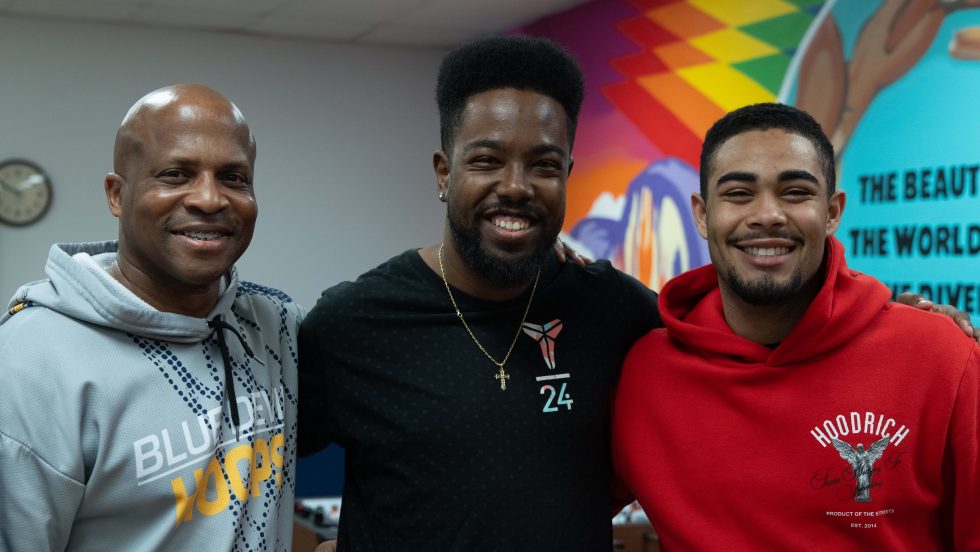Black students account for 6% of the 1.9 million students enrolled in 116 California Community Colleges, the largest higher education system in the country.
But a recent study confirmed that low enrollment numbers are another factor that make Black students vulnerable to being underserved.
Data analysis, commissioned in 2020 by Umoja Community, the African American Male Education Network & Development (A2MEND), The Campaign for College Opportunity, The Community College Equal Assessment Lab and The Black Think Tank, looked at the phenomena. It revealed that the University of California, California State University and CCC systems all invest less money per Black student than in students from other categories.
Merced College Assistant Director of Student Equity and Support Centers Louis Foy said fixing that equity issue requires delivering support that makes sense culturally and logistically for Black students. That is the mission behind the Umoja and A2MEND programs.
“Students used to have to find and walk into a building to ask for help,” Foy explained. “They’d get discouraged. Now we go to them and say, ‘Here’s what we have for you.’ Some don’t even know what they need, so we should make help as accessible as possible. The message is, ‘We’re here, and you have support.’”
Umoja
This is the second year for Umoja at Merced College. The learning community is open to all students.Umoja counselors put students in cohorts to take English 1A and Math 10 in the fall, and then Guidance 30 and Psychology 1A in the spring. Umoja tutors are embedded in those classes, offering assistance in real time.
Foy said they’ll eventually add biology and philosophy or sociology classes. There are 20 Umoja students this semester, with space for 50.
“Bringing Umoja to campus should show everyone that we understand how to align diversity, equity and inclusion efforts at Merced College,” Foy said. “It’s intentional. We’re visiting local high schools like we do with the Puente Program (for Hispanic students). We’ll eventually spread the word at churches and our local NAACP chapter. Recruiting is key.”
Freshman computer science and cybersecurity major Kelia Evans already feels the impact since joining Umoja. Evans was named the Umoja Student of the Semester last fall.
“Especially not being in school for a few years, going back and finding help right away has been a highlight,” said the 29-year-old, soon-to-be mother of three.
Evans takes advantage of extra tutoring at the library and online through Brainfuse. She has regular access to a laptop. She earns grocery cards by participating with A2MEND. Most importantly, her 2-year-old son has the chance to be placed in the Merced College Child Development Center.
“There’s a lot of stress coming back to school,” Evans said. “Knowing I have people to ask questions, that I’m not bothering them, is great. That’s what I enjoy, having that connection. Now I have straight tunnel vision at school.”
A2MEND
We know the pandemic hindered learning for students all over the globe. Within the CCC, the Black student population saw some of the largest decreases in enrollment (20%) and progress toward degree in the aftermath.
Created by a group of Black men in higher education in 2006, A2MEND has sought to knock down obstacles Black males face in gaining education, particularly in community college.
“Unfortunately, that number has been going in the wrong direction,” said Merced College Communications Professor and A2MEND faculty advisor Janee Young. “We’re trying to retain and attract more participants by also partnering with Umoja and the Black Student Union.”
Young, who has taught at Merced College for 19 years, accepted the advisor position to help force the college to more fully support Black students via A2MEND. Pronounced “amend,” it’s an all-inclusive support organization providing mentors of color, community service opportunities, and leadership training.
To cap off its first full year, students and faculty—including from the campus Underground Railroad Faculty Group—will be among the 1,300 participants attending the annual A2MEND Conference March 6-8 in Los Angeles.
“We’ve already had great events this year—our Welcome Black mixer, Friendsgiving and a Kwanzaa celebration,” she said. “We’re gaining traction. Black students now know we want them on campus, and we do celebrate and support them. The idea behind a community college is that it should feel like a community. I definitely think we can do a better job.”
Last August, Young and program president Tarence McCullough began by recruiting Blue Devil athletes, like basketball player Albert Awuah.
Over a year ago, Awuah left his family in Accra, Ghana, to pursue an education. The sophomore Kinesiology major joined A2MEND after McCullough spoke to the team last spring.
Awuah was struggling financially at the time. As an international student, he is not eligible for social services like CalFresh or financial aid.
“Since I arrived, I’ve had issues getting into an apartment,” Awuah said. “I had come here at a time when there was a financial crisis in Ghana. The sponsors I had there had to back out, and it was hard to access my bank at home.”
He credits McCullough and now-retired Student Services Assistant Robbie Deen for helping him get on his feet. He appreciates Dean of Student Services Joe Serena for assisting him in finding a campus job. Foy makes sure Awuah receives grocery cards, supplies and the like, by participating in A2MEND. His friend Nathan Martinez, a Merced College football player, lends a hand and transportation for everything else.
“Once I started working, I started feeling settled,” said Awuah, who now shares an apartment with a Ghanaian friend. “Now I have a place to lay my head.”
